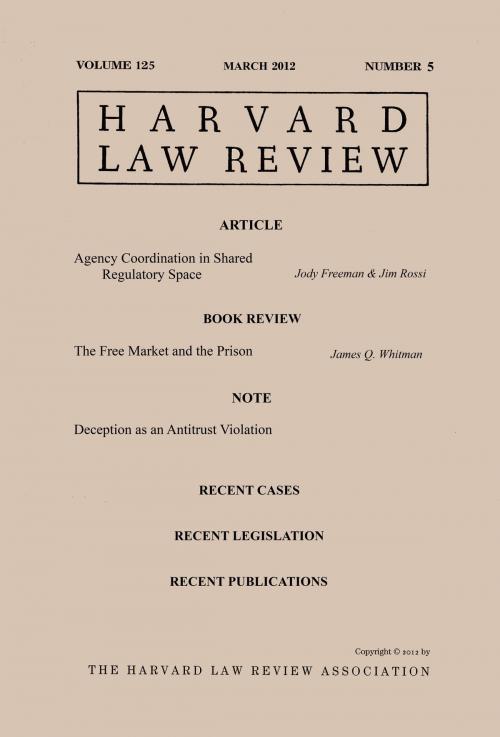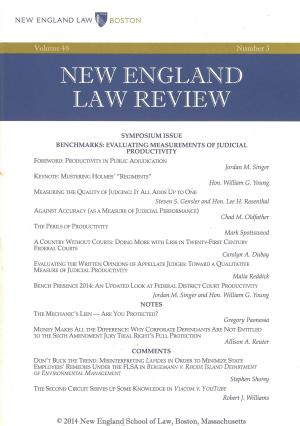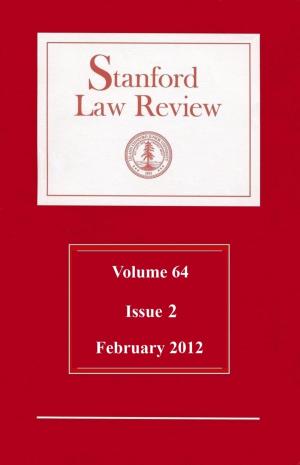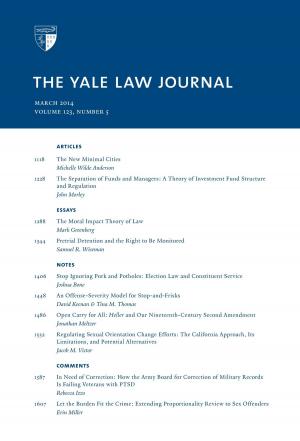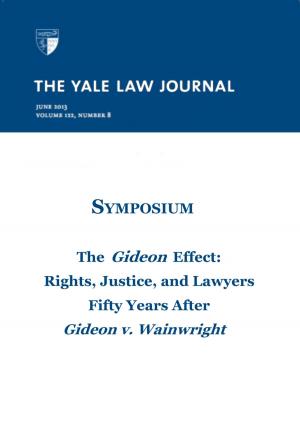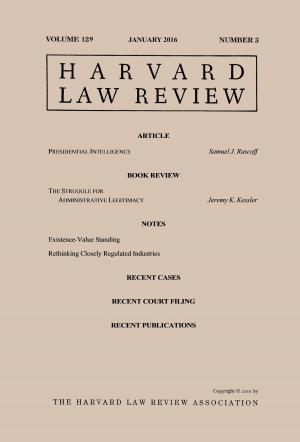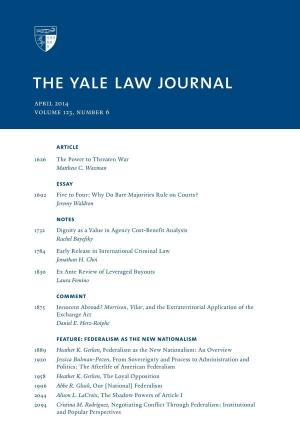Harvard Law Review: Volume 125, Number 5 - March 2012
Nonfiction, Reference & Language, Law, Administrative Law & Regulatory Practice, Social & Cultural Studies, Social Science, Crimes & Criminals, Penology| Author: | Harvard Law Review | ISBN: | 9781610279413 |
| Publisher: | Quid Pro, LLC | Publication: | December 31, 2013 |
| Imprint: | Smashwords Edition | Language: | English |
| Author: | Harvard Law Review |
| ISBN: | 9781610279413 |
| Publisher: | Quid Pro, LLC |
| Publication: | December 31, 2013 |
| Imprint: | Smashwords Edition |
| Language: | English |
The Harvard Law Review is offered in a quality eBook edition, featuring active Contents, linked footnotes and cross-references, legible tables, and proper formatting.
Featured articles in the March 2012 issue are from such recognized scholars as Jody Freeman and Jim Rossi, on the coordination of administrative agencies when they share regulatory space, and James Whitman, reviewing Bernard Harcourt's new book on the illusion of free markets as to prisons. Student contributions explore the law relating to antitrust law and business deception; the failed Google Books settlement; mergers and acquisitions; materiality in securities law; administrative law; patentable subject matter; and paid sick leave. Finally, the issue includes two Book Notes.
The Harvard Law Review is a student-run organization whose primary purpose is to publish a journal of legal scholarship. The organization is formally independent of the Harvard Law School. Student editors make all editorial and organizational decisions. Aside from serving as an important academic forum for legal scholarship, the Review has two other goals. First, the journal is designed to be an effective research tool for practicing lawyers and students of the law. Second, it provides opportunities for Review members to develop their own editing and writing skills. Accordingly, each issue contains pieces by student editors as well as outside authors. The Review generally publishes articles by professors, judges, and practitioners and solicits reviews of important recent books from recognized experts. Most student writing takes the form of Notes, Recent Cases, Recent Legislation, and Book Notes.
This issue of the Review is March 2012, the fifth issue of academic year 2011-2012 (Volume 125).
The Harvard Law Review is offered in a quality eBook edition, featuring active Contents, linked footnotes and cross-references, legible tables, and proper formatting.
Featured articles in the March 2012 issue are from such recognized scholars as Jody Freeman and Jim Rossi, on the coordination of administrative agencies when they share regulatory space, and James Whitman, reviewing Bernard Harcourt's new book on the illusion of free markets as to prisons. Student contributions explore the law relating to antitrust law and business deception; the failed Google Books settlement; mergers and acquisitions; materiality in securities law; administrative law; patentable subject matter; and paid sick leave. Finally, the issue includes two Book Notes.
The Harvard Law Review is a student-run organization whose primary purpose is to publish a journal of legal scholarship. The organization is formally independent of the Harvard Law School. Student editors make all editorial and organizational decisions. Aside from serving as an important academic forum for legal scholarship, the Review has two other goals. First, the journal is designed to be an effective research tool for practicing lawyers and students of the law. Second, it provides opportunities for Review members to develop their own editing and writing skills. Accordingly, each issue contains pieces by student editors as well as outside authors. The Review generally publishes articles by professors, judges, and practitioners and solicits reviews of important recent books from recognized experts. Most student writing takes the form of Notes, Recent Cases, Recent Legislation, and Book Notes.
This issue of the Review is March 2012, the fifth issue of academic year 2011-2012 (Volume 125).
